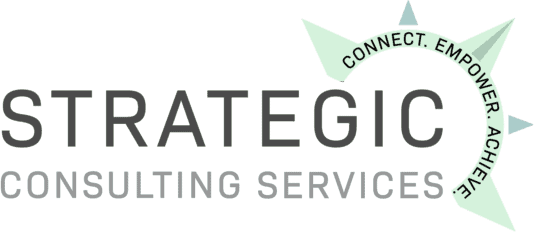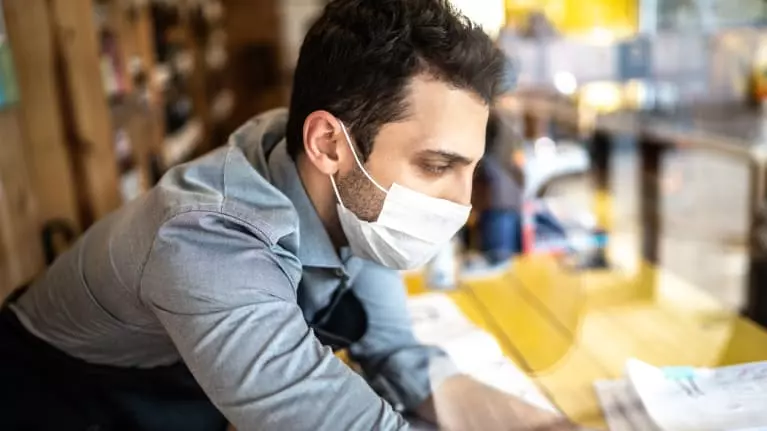Employers are facing an unprecedented situation where employees who have contracted or recovered from COVID-19 need accommodations. Thankfully, the COVID survival rate is high, but there are lingering effects for many people who have contracted and recovered from COVID-19. We want to share some best practices and as always, JAN’s article on the topic is a very helpful reference.
Is COVID-19 as a Disability under the ADA?
According to JAN, “it is possible that a person with COVID-19 or its long-term effects could meet the definition of disability under the ADA.” Employers who receive requests for accommodations from employees with COVID-19 or its long-term effects should use the process laid out in the ADA to determine their legal responsibility to offer accommodations. Like any illness or disability, this determination should be made on a case-by-case basis.
In the meantime, employers can provide accommodations without determining whether an employee has a disability under the ADA until more is known.
Workplace Accommodations for Employees Who’ve Contracted COVID-19
Accommodations will vary depending on the specific limitations an employee has as well as the job duties and work environment, but the ideas below can serve as a starting point for exploring accommodation ideas. For more specific ideas, contact JAN.
For Employees Currently with COVID-19
Employees who currently have COVID-19 typically need leave or may ask to telework if they are able to continue working. Quarantine is recommended for at least 10 days after a negative test for COVID-19 is received.
Accommodations for COVID-19 Recovered Employees
Employees who’ve recovered from COVID-19 can safely return to the workplace, but may have long-term limitations such as:
- Shortness of breath with exertion
- Extreme fatigue
- Brain fog
- Insomnia
- Tachycardia
- Joint pain/body ache
- Headaches
Here are some accommodation ideas to explore for each of these limitations:
Workplace Accommodations for Shortness of Breath Related to COVID-19
- Provide an alternative mask
- Allow removal of mask when appropriate
- Reduce physical exertion
- Allow rest breaks
- Reduce workplace triggers, if any
- Allow time for medical treatment such as use of a nebulizer or inhaler
- Restructure the job to remove marginal job functions
- Develop a plan of action to deal with sudden exacerbations
- Allow telework
Workplace Accommodations for Extreme Fatigue Related to COVID-19
- Allow rest breaks
- Provide an ergonomic workstation
- Allow a flexible schedule
- Restructure the job to remove marginal job functions
- Allow telework
Workplace Accommodations for Brain Fog Related to COVID-19
- Provide a quiet workspace
- Allow use of noise cancellation or white noise
- Provide uninterrupted work time
- Provide memory aids such as flowcharts and check lists
- Allow the use of apps for concentration, memory, and organization
- Allow rest breaks
- Restructure the job to remove marginal functions to allow focus on essential job duties
- Allow telework
Workplace Accommodations for Insomnia Related to COVID-19
- Allow rest breaks to take quick naps
- Allow a flexible schedule
- Keep the workstation temperature on the cool side
- Allow cold drinks at the workstation
- Allow telework
Workplace Accommodations for Tachycardia (Fast Heart Rate) Related to COVID-19
- Allow rest breaks
- Control the workstation temperature
- Provide an ergonomic workstation
- Allow drinks at the workstation
- Allow time off for treatment
- Develop a plan of action to deal with sudden exacerbations
- Allow telework
Workplace Accommodations for Joint Pain/Body Aches Related to COVID-19
- Allow rest breaks
- Reduce the physical demands of the job
- Provide an ergonomic workstation
- Allow a flexible schedule
- Restructure the job to remove marginal job functions
- Allow telework
Workplace Accommodations for Headaches Related to COVID-19
- Reduce workplace triggers, if any
- Provide alternative lighting
- Reduce glare
- Allow flexible scheduling
- Allow telework
Contact the ADA Experts at Strategic Consulting
Our team is here to help with your disability accommodation issues, vocational rehabilitation needs, ergonomic evaluations, and other employee needs.
We have partnered and provided solutions to some of the largest companies in the world (such as Boeing, Microsoft, and Amazon). But, at our core, we are still “people taking care of people,” one project at a time. Our success is built upon and providing you the best solution to your workplace challenge. Contact us today by filling out a form (below), submitting a referral, or visiting our ‘Contact Us‘ page to find your nearest office.

Ric has been working in the industry since 2002, specializing in developing employer jobsite analysis and light duty programs, ergonomics consultations and adjustments, disability accommodations and providing effective return to work solutions. Ric is Matheson trained in Ergonomics and is a Certified Ergonomics Evaluation Specialist. He earned a Bachelor of Arts Degree in Psychology from Western Washington University and later his Master’s Degree, M.Ed., Education Counseling from Seattle Pacific University. Ric is currently a Registered Vocational Rehabilitation Counselor for the Department of Labor and Industries and has been a Certified Disability Manager Specialist since 2006.

